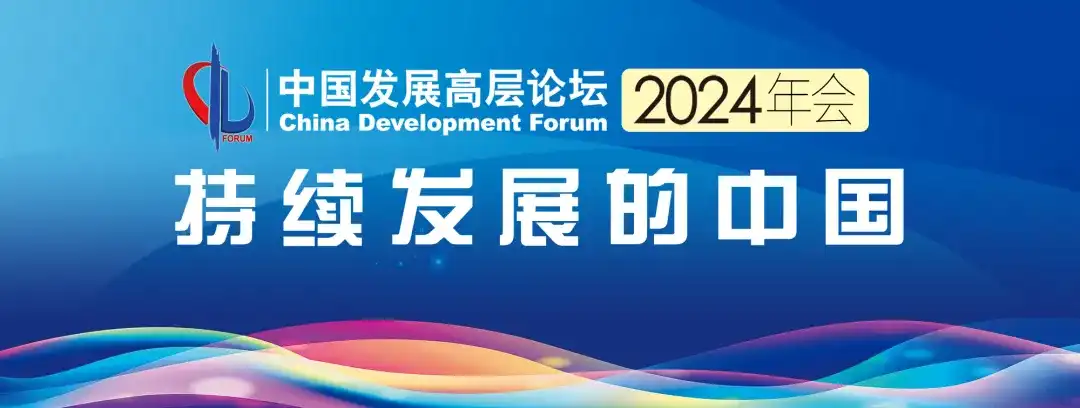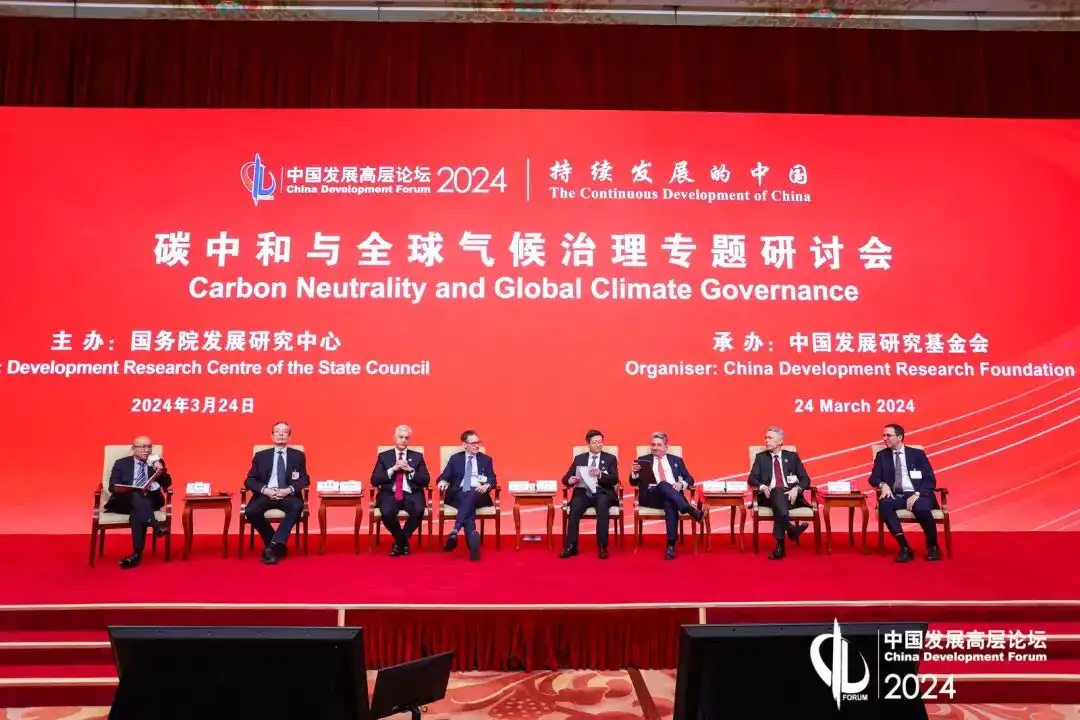Carbon neutrality and global climate governance discuss a green future

**  **碳中和与全球气候治理专题研讨会现场
**碳中和与全球气候治理专题研讨会现场
■ China Economic Times reporter Hu Pan
Global climate change has become a common challenge and major issue facing the world, and actively responding to climate change has become a global consensus. Faced with challenges, how should we respond?
On March 24, at the symposium on carbon neutrality and global climate governance at the 2024 annual meeting of the China Development Forum, many domestic and foreign government officials, experts, scholars, and business people focused on how to achieve the goal of carbon neutrality and how to actively participate. Sharing views and suggestions on topics such as global climate governance. Gao Shiji, director of the Institute of Resources and Environmental Policy of the Development Research Center of the State Council, presided over this seminar.
Zhao Yingmin, Vice Minister of Ecology and Environment, took the lead in delivering a keynote speech. He said that at present, China's green development is showing new characteristics:First, new industries and new business formats demonstrate new green momentum, and the vigorous development of green and low-carbon fields is becoming a new engine for China's development; second, the ecological environment has improved significantly; third, the green and low-carbon market mechanism has continued to improve, and the national carbon emissions trading market has been successfully closed; fourth, promote new progress in global governance and inject strong impetus into the global response to climate change.
Zhao Yingmin emphasized that green and low-carbon transformation is not only the purpose of high-quality development, but also a means of high-quality development. To achieve Chinese-style modernization, we must accelerate green and low-carbon transformation. In the next step, we will coordinate and coordinate various factors such as climate change, energy security, food security and sustainable development, actively and steadily promote carbon peak and carbon neutrality, further promote environmental pollution prevention and control, and accelerate green technology innovation and green technology promotion and application.
Later, Bai Zhongen, Dean of the School of Economics and Management of Tsinghua University, and Tim Cook, CEO of Apple, started a dialogue on the topic of "green technology innovation development and opportunities." Cook mentioned in the dialogue that Apple has proposed in recent years the goal of achieving carbon neutrality for all products by 2030. "Last year, Apple released its first carbon-neutral product. In the process, without our suppliers, we will not be able to achieve our goals and achieve carbon neutrality." Cook said that many of Apple's supply chains are located in China, and Apple's suppliers in China have not only accepted this goal, but have also been investing and seeking innovation.
In the panel discussion session after the dialogue, Liu Shijin, Chinese Chief Advisor of the China International Cooperation Committee on Environment and Development and former Deputy Director of the Development Research Center of the State Council, Han Murui, CEO of BHP Billiton, Wen Tuos, CEO of Standard Chartered Group, Yu Bing, General Manager of National Energy Investment Group Co., Ltd., and Bill Anderson, Chairman and CEO of Bayer Group Management Committee. Miguel Lopez, CEO of ThyssenKrupp AG, Miao Wenle, CEO of Swiss Reinsurance Group, Wan Dekun, CEO of Anglo American Group, Zhang Jianqiu, Senior CEO of Yili Group, Wei Jieming, CEO of Trafigura Group and Executive Chairman of the Board, Zhu Yunlai, former President and CEO of China International Capital Corporation and visiting Professor of Management practice of Tsinghua University Zhang Junting, president of Rongcheng Group and chairman of Rongcheng Iron and Steel Group, Nicholas Stern, professor of London School of Economics, Wen Shungang, chairman of China Huaneng Group Co., Ltd., Shi Weitze, CEO of Boston Consulting, Jane Siming, president and CEO of UL, and Jeffrey Sachs, professor of Columbia University, shared their views respectively. Liu Zhenmin, China's special envoy on climate change, made a keynote speech.
Liu Shijin said that in response to climate change, the long-term goal of achieving carbon neutrality cannot be wavered or retreated. In the process of achieving carbon neutrality goals, countries must also implement their responsibilities and improve incentive mechanisms. The growth target of green and low-carbon industries should be appropriately adjusted, and the replacement speed of new technologies and new industries should be accelerated.
"Human society relies on comprehensive and systematic technology to respond to climate change. Innovation and the development of low-carbon and green industries it drives are the fundamental solution to climate change and the key to handling various contradictions and straightening out complex relationships." Liu Shijin emphasized that the development of low-carbon and green industries must adhere to the basic principle of win-win cooperation and adhere to the direction of diversification and globalization. Carbon neutrality is the only way to deal with climate change on a global scale. On this road, human society has more and more common interests and can reach more and more consensuses.
Han Murui said that the scale and complexity of the global decarbonization challenge highlights the importance of uniting industry, government and communities."We need integration and cooperation, and that is the key. Achieving carbon neutrality and net-zero emissions requires innovative cooperation and regionally specific plans, and investment in new industries and new methods will unleash huge economic opportunities."
Han Murui also pointed out that China is very important in the global transition to clean energy and has demonstrated excellent leadership in all aspects. In 2023 alone, China's investment in emerging clean energy fields has increased by 24% year-on-year, reaching US$676 billion. Three emerging industries such as solar panels, electric vehicles and lithium-ion batteries mark the importance of technology to green development and the economic opportunities brought by transformation.
Yu Bing pointed out in his speech that the pace of global carbon reduction and climate governance are urgent, and there is a long way to go to achieve global carbon neutrality.
